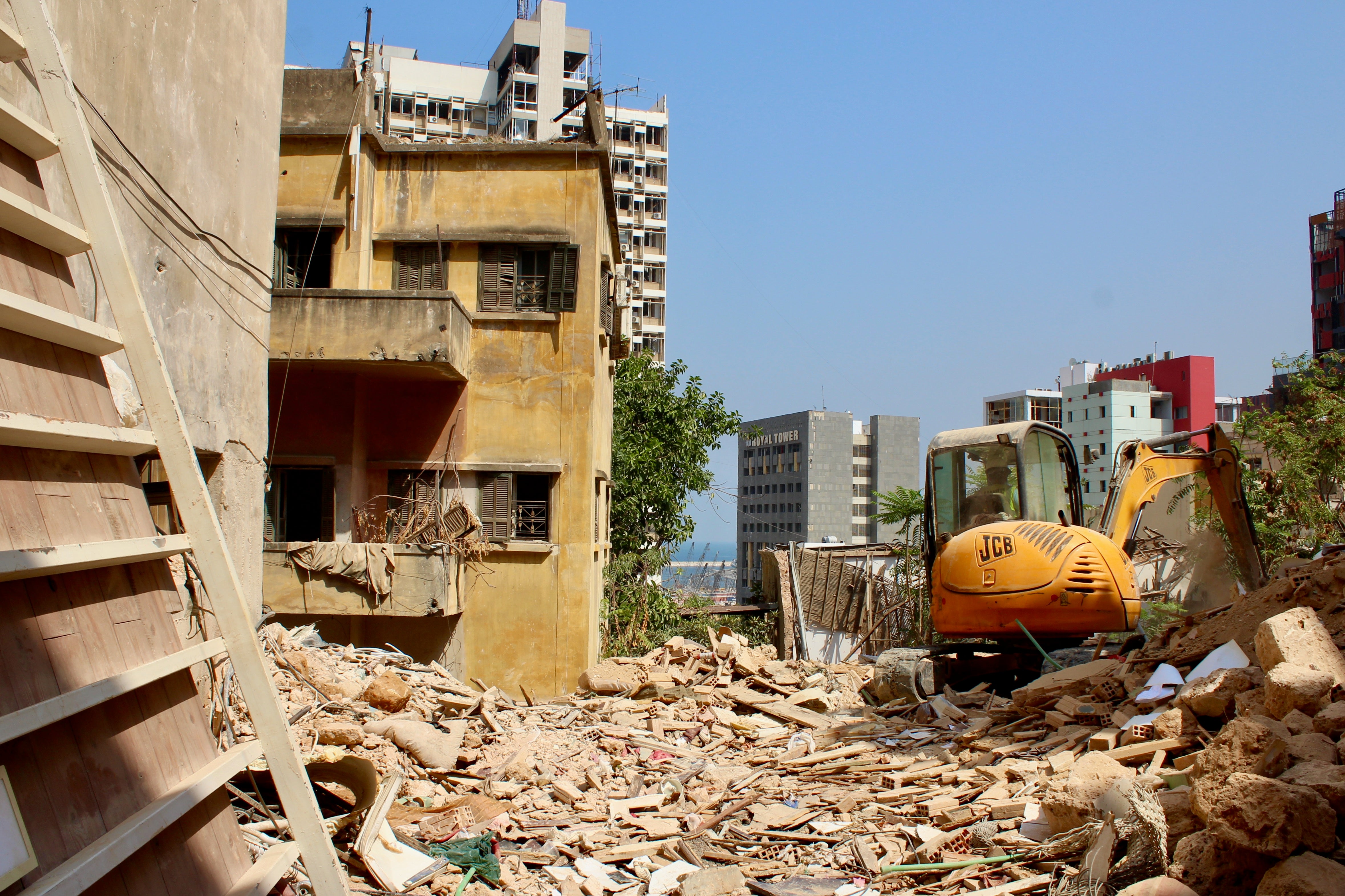Beirut, 19 September 2020. Following the Port of Beirut explosions on 4 August this year World Cleanup Day has a different meaning in Lebanon. While UN-Habitat, together with the rest of the humanitarian community works on preparing the reform, recovery and reconstruction framework in response to the blast (3RF), the agency is also addressing the rubble and debris management issue.
Following the blast, more than 20 UN-Habitat team members took part in the #UN4Beirut initiative on 8 August, to clean up glass, debris and rubble from the streets of Beirut and help vulnerable residents clear their damaged houses.

Together with partners, UN-Habitat co-launched a “Rubble to Mountains” initiative, to prevent an environmental waste crisis. This initiative aims at sorting the quantities of rubble, concrete, iron, plastic, glass, and nylon and and turning them into material for landfill in mountains severely eroded by quarrying. The initiative will include producing benches, bus stops, recycling bins and other essential items.
Currently UN-Habitat, along with the Environment Sector under the Reform, Recovery and Reconstruction Framework (3RF), the framework which will guide the country in recovering from the blast in the months to come, are putting in place a sustainable framework and action plan for dealing with construction and demolition waste through mainstreaming reforms of solid waste management in this area, and ensuring a proper recovery and reconstruction processes.
“The management of disaster debris is critical to protect human health, prevent environmental impacts, reduce injuries and conserve disposal capacity. Debris management is one of many competing priorities that must be managed in the aftermath of a disaster, it involves planning and coordination among several entities at different levels, engagement with the private sector and innovative thinking. UN-Habitat is proud to be part of the “Rubble to Mountains” Consortia,”” said Taina Christiansen, Head of the UN-Habitat Country Programme in Lebanon.
Message from the Executive Director of UN-Habitat Maimunah Mohd Sharif on World Cleanup Day
“ Waste Management is an increasing problem that cities of the world face. The current COVID-19 crisis has only added to the problem by exposing people who handle waste to an increased risk of contracting the disease. On this World Cleanup day, I urge everyone to reduce their waste generation and cities to support the efforts of citizens to reduce waste and dispose of all waste in a safe and environmentally sound manner. UN-Habitat’s “Waste Wise Cities” now has a membership of 165 cities. I urge other cities to join this initiative and share their experiences and good practices in waste management with other cities “.